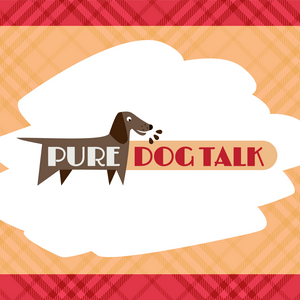From Pugs to the Green Carpet: Charlotte Patterson on Judging the Toy Group at Westminster
[caption id="attachment_15011" align="alignleft" width="491"] Charlotte Patterson awarding David Fitzpatrick first in the Toy Group at Westminster Kennel Club in 2017 with "Chuckie."[/caption]
In this episode of Pure Dog Talk, host Laura Reeves sits down with one of the true legends of the sport, Charlotte Patterson, longtime Pug breeder, former president of the Pug Dog Club of America, successful professional handler and Westminster Kennel Club judge. With Charlotte set to judge the Toy Group at Westminster, this conversation is both timely and timeless, packed with history, insight and hard-earned wisdom.
Charlotte shares the unforgettable story of how she fell in love with Pugs in 1969, buying her first dog on a payment plan and unknowingly stepping into a world that would change her life forever. From borrowing money for a stud fee to producing top winners — including a Toy Group winner at Westminster — Charlotte’s journey perfectly illustrates how passion, mentorship and commitment shape successful preservation breeders.
The conversation dives deep into breeding philosophy, particularly in brachycephalic breeds like Pugs. Charlotte explains why breeders must be intentional, cautious, and forward-thinking, emphasizing the long-term consequences of breeding decisions. She speaks candidly about balance, movement, head type, breathing, and why “what you put in today will show up generations later.” Her message is clear: know your standard, know your pedigrees and never breed blindly.
As a judge with more than 35 years of experience and tens of thousands of dogs examined, Charlotte offers a rare look into Toy Group judging at the highest level. She discusses what she values when she steps onto the green carpet at Madison Square Garden — balance, breed type, soundness, and dogs that can confidently perform under pressure. She also explains why movement in toy breeds must reflect breed purpose, not exaggerated speed.
Beyond breeding and judging, Charlotte offers thoughtful guidance on breed clubs, mentorship and leadership, sharing lessons learned from over a decade as a national club president. Her advice for newcomers? Find the right mentor, get involved and understand that leadership is about work — not power.
This episode is a must-listen for dog breeders, exhibitors, judges, and purebred dog enthusiasts who care deeply about preserving breed history while moving the sport forward.
👉 Don’t miss this heartfelt, humorous, and deeply knowledgeable conversation with one of purebred dogs’ most respected voices.


